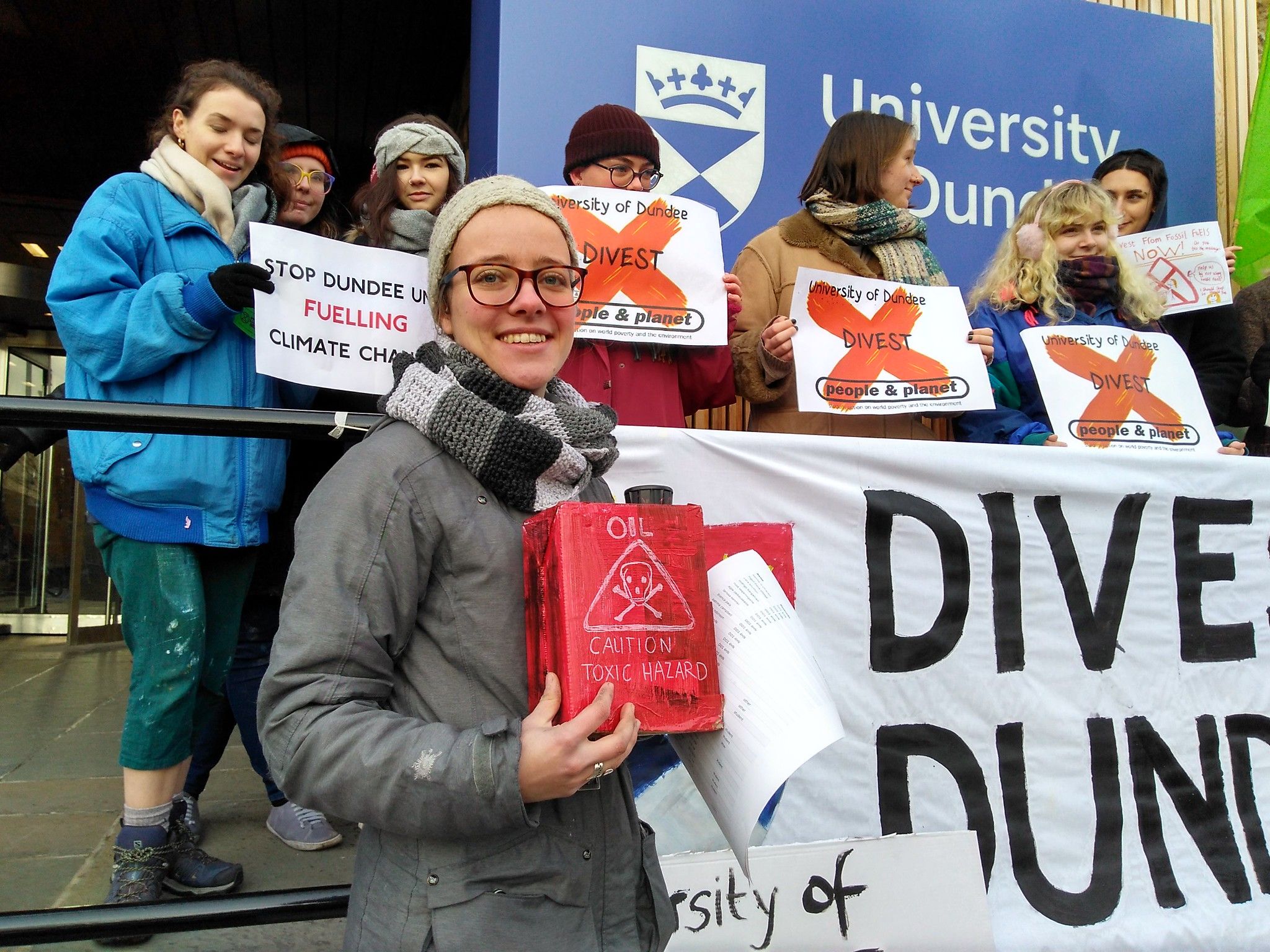
Fossil fuel industry spills money and power in year of tumult

When a ship is plain sailing, it’s hard to knock it off course. That’s been the conundrum for us rubber-dinghied climate activists for decades now as we try our best to push the supertanker that is the global economy towards sustainability.
But in 2020 the ship hit the rocks – and hard. As the keel started to list most of us were preoccupied with more immediate concerns. But down below the waves the supposed engine room of our economy – the fossil fuel industry – was breached.
The Coronavirus pandemic’s impact on fossil fuels was of historic proportions. The market value of giant companies like Shell and BP dropped by more than half in a matter of days. Demand for oil crashed so severely that oil commodity prices fell below zero: traders would effectively pay you to take oil off their hands.
We’d had oil crises before, but this was off the charts.
If ever there was a moment where the power of the fossil fuel industry could be challenged, this was it. Governments worldwide would soon be pumping cash into the economy after this crisis, and we wanted to make sure that those funds were spent on a just and green recovery.
As Scottish charities, trade unions and faith groups demanded politicians build back better, divestment activists knew that finance and investment would be key in this struggle. And despite the difficulties of organising online, staying in touch, and lobbying virtually, that is exactly what campaigners did.
A diversity of tactics
In 1945 a young Eileen Richards, Moray, opened her first bank account at the Barclays Bank. 75 years later she was quitting in protest over the Bank’s funding of fossil fuels.
Eileen spoke out in October as part of a coordinated campaign against Barclays, one of the world’s largest funders of fossil fuels which provided $118 billion to the industry in the last four years.
Elsewhere Extinction Rebellion Dundee took aim at Barclays sponsorship of the recently opened V&A museum and in Glasgow fossil-free activists targeted HSBC, a major coal financier, protesting outside branches and pasting fake-HSBC adverts across the city.

In Edinburgh and Glasgow the year began with protests, with Edinburgh-based investor Baillie Gifford blockaded in the late Winter and the University of Glasgow and Strathclyde Pension Fund hit in the early Spring.
Resistance at the fence-line
At the fence-line of Scotland’s oil and gas plants community members and activists have been making their voice heard.
In Fife, buoyed by their defeat of a new gas power station, locals living in the glow of the Mossmorran petrochemical plants, run by Exxon and Shell, have protested weekly at the site’s gates, seeking permanent closure of the plant as the only route to ending the blight of flaring and noise pollution.
Their calls have been amplified by Climate Camp who, in July, protested across Scotland in a unified day of action.
The nearby oil and gas works at INEOS Grangemouth were blockaded by Extinction Rebellion, and discussions are ongoing about how to build a new local campaign.
Extinction Rebellion were busy in Aberdeen too, blockading Shell’s offices and dumping a mound of manure outside BP’s UK headquarters to show exactly what they thought of the oil giant’s climate claims.
None of these sites have seen climate protest before 2020.
Toppling dominos
All this outrage against fossil fuels has not escaped the notice of investors – not least because divestment activists brought this pressure directly to the desks of decision makers. And the campaign wins started to rack up.
In July, the UK’s largest pension fund by membership NEST announced divestment from coal, Arctic oil and gas, and tar sands.
In August, the Lothian Pension Fund, one of Scotland’s largest public investors, announced it will no longer invest in fossil fuel debt, a major win for the five-year long Divest Lothian campaign.
In October, Glasgow City Council, which administers one of Europe’s largest pension funds, announced its draft climate emergency policy requires the Council “to encourage pension fund investors in the city to develop a strategy for divestment from the fossil fuel industry by 2025”.
In November, the University of Dundee announced complete withdrawal from fossil fuel investments.
In December, the UK Government announced a total end to financing for fossil fuels abroad, a practice worth many billions to big oil.
Globally some hugely influential organisations began to move their cash in 2020, the University of Cambridge, New York State, Lloyds of London and the Welsh Parliament.
The change we need
2020 was a really tough year to be a climate activist. Fortunately for the planet, it was an even worse year for the fossil fuel industry.

Without new finance, oil, gas and coal companies cannot open new fields. The cash flow is being cut off and it’s making a difference.
Collectively the changes won by campaigners will lead to billions of pounds moving away from fossil fuels and towards green investments. They will hold back the damage wrought by new fossil fuel projects and make a sustainable future more possible.
This economic and social shift away from fossil fuels should focus minds on the need to develop an urgent transition plan with the workers and communities currently reliant on these sectors. We know that, given the option, over 80% of workers would consider leaving the industry.
2021 will bring new challenges, but opportunities too. The Scottish Parliament elections will provide a brief opportunity to push for change on local government and Parliamentary pensions and to push the Scottish National Investment Bank into delivering on its (hard won) commitment to invest ethically.
The UN climate talks will, one year later than planned, put businesses and the UK Government in the spotlight, giving us an opportunity to win changes across the economy. Fossil fuels will be banging on the door to tout their false solutions: will we be able to drown them out?
Money won’t win a sustainable future on its own, but as part of a global climate movement that’s driving change across society, divestment is making the future brighter.
By challenging fossil fuels at source, through their coffers, and through legislative change, Scotland’s climate movement is building a fossil free future, brick by brick.
If you’re interested in learning more about getting active on climate campaigns, check out our new Introduction to Campaigning short course beginning in January 2021. This will help you take your first steps, learn the basic and build skills alongside other people who want to get active.
